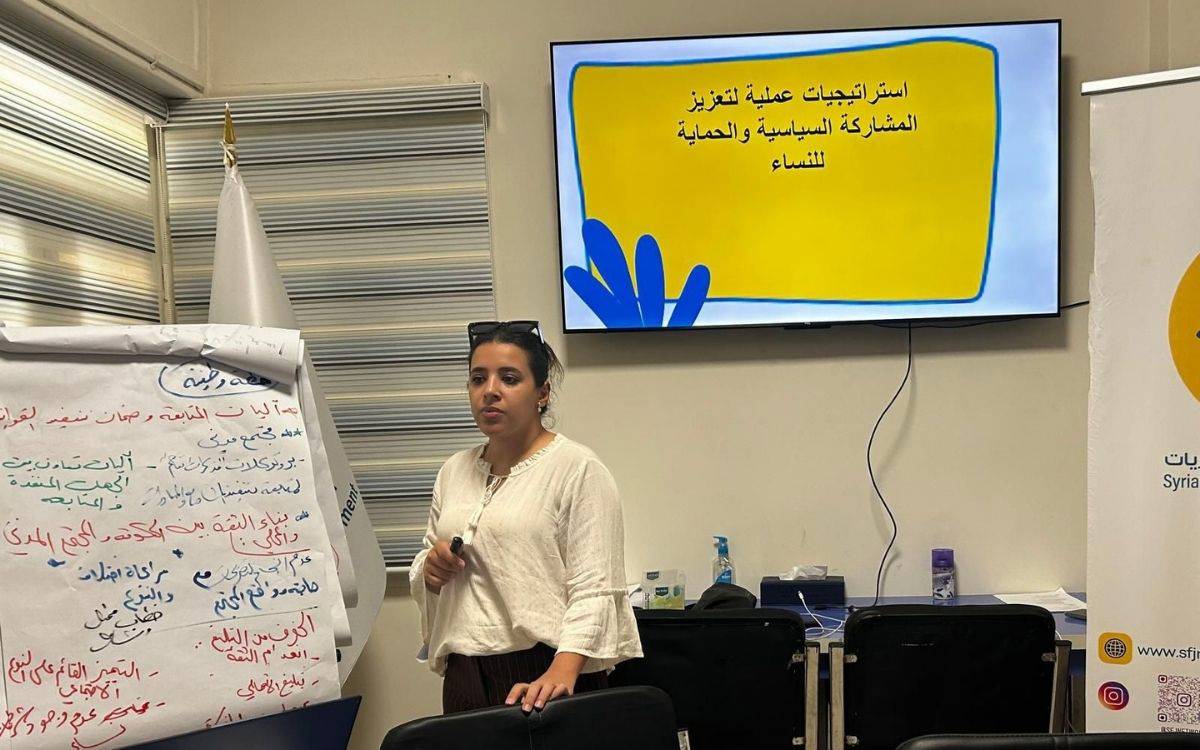Click to read the article in Turkish
The İstanbul Bilgi University Human Rights Law Research Center organized an online panel discussion yesterday (March 22) as part of its March 8 International Women's Day panel discussion series.
Held in reference to March 22, 2021, when Turkey notified the Council of Europe about its decision to withdraw from the İstanbul Convention, the online meeting was attended by Prof. Feride Acar, lawyer Hülya Gülbahar from the Women's Platform for Equality (EŞİK), journalist-writer Berrin Sönmez and Bilgi University faculty member Prof. Turgut Tarhanlı.
'CEDAW is the constitution of women'
Underlining the importance of the Convention on the Elimination of All Forms of Discrimination against Women (CEDAW), Prof. Acar said:
"In the world, CEDAW Recommendation No. 19 said that violence against women is inflicted because they are women. What stages violence against women went through in the past century are obvious. It is acknowledged that violence is not in the private sphere, but in the public sphere. There is a transition from a human-oriented to a rights-based attitude.
"There has been a consensus in the international community that this issue is a violation of human rights. There are binding conventions about these issues such as the İstanbul Convention... But there are also some documents adopted by the states to improve them.
The CEDAW is known as the global constitution of women's human rights. Even though violence against women is not directly indicated in the CEDAW, its factual existence in the world has been indicated in the reports submitted to the CEDAW committee.
'They want to introduce religious rules'
Taking the floor afterwards, lawyer Hülya Gülbahar talked about the amendments intended to be introduced to the Civil Code of Turkey:
"There are still attacks to amend the Civil Code. The Civil Code is currently under very serious attacks.
"The aim of some platforms is to amend the Civil Code. These groups want to reintroduce the concept of 'head of household' and to designate the man as the head of the household; they advocate for the abolishment of family courts and even for the replacement of the Civil Code by religious rules. It is not actually only these groups, there are a large group deep inside.
"For instance, there is a debate on a [law] package about the debate on alimony. This is the most important point behind us saying 'Enforce the laws'. It is written in laws; enforce it. They will start with the alimony in the Civil Code and go to the point of 'the head of a household is man'. We had better look at the report of the Divorce Commission. It lists the amendments to the law on violence and offers a road map to the government.
"When we remember the climate when the İstanbul Convention was abolished, we need to remember the changing process and multiply it by 3, by 5. It is about this: Will we live based on the Civil Code or the rules of a certain religion? We think the issue with the alimony has been postponed, but one cannot trust in this system. So, we are always on the alert.
"The Civil Code means a way of life; it is a law that will affect the present and future of society. We need to pay attention to this. We need to be alert all the time. We have to struggle to ensure that there is no intervention in the Civil Code; we definitely must not let it happen".
'Turkey has never been secular'
Journalist-writer Berrin Sönmez also said:
"First of all, I would like to express a finding of Kemal Karpat. Turkey has never been secular. This is the finding of Kemal Karpat. On the matter of the separation of the state and religious affairs, which we see in the classic definitions of secularism...
In the beginning, yes, the state and religious affairs were separated. But did the state try to dominate the religious domain? Yes, in Turkey, from the very beginning... With the establishment of the Presidency of Religious Affairs, the state has chosen to be an authority in the sphere of religion. Turkey has never been secular. For this very reason, secularism has been regarded as a very problematic area in society, it has been regarded as the state's intervention in religion.
"But it was not the only flaw. There are two elements of secularism in the world: The secularization of public institutions and the secularization of the law. Has another element been introduced in Turkey apart from this, such as efforts to ensure secularism in social life?"
'Opposition could have applied to CoE'
Taking the floor as the last speaker, Prof. Turgut Tarhanlı talked about whether the İstanbul Convention could be legally abolished or not:
"Legally speaking, a Presidential decision cannot be immediately accepted like a Parliamentary decision.
"At the time of the Convention's abolishment, opposition parties could have applied to the Council of Europe. They could have ex officio advocate that it is unlawful in Turkey under the domestic law.
"Now, if the Council of State annuls it, it will be a new development, a new process, which may then be conveyed via diplomatic channels".
CLICK - Turkey's withdrawal from İstanbul Convention is final
(EMK/SD)











